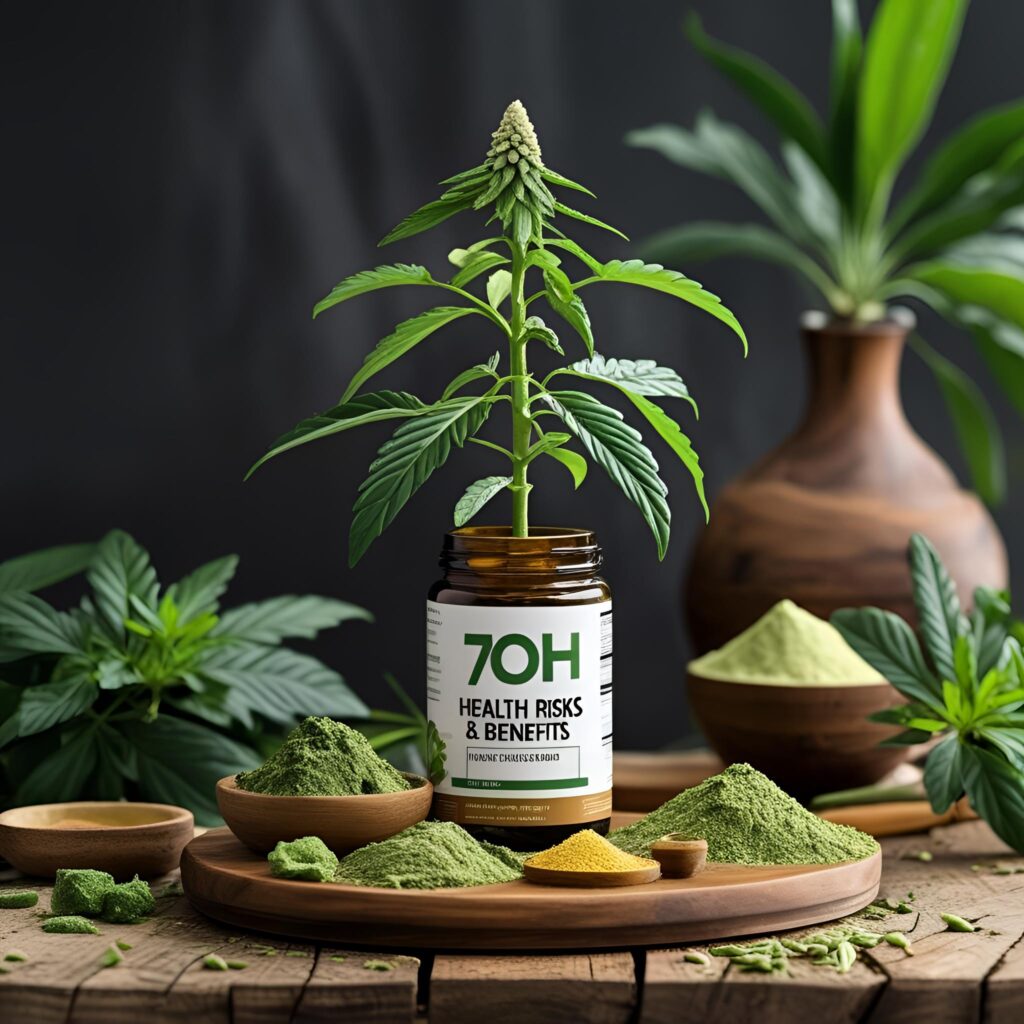In the rapidly evolving world of plant-based medicine, one compound has begun to spark both excitement and curiosity: 7OH, or 7-hydroxy, a bioactive metabolite that is gaining recognition for its therapeutic potential. Originally discovered in the metabolism of certain natural compounds like kratom, 7OH may play a significant role in shaping the future of alternative and integrative medicine. But like any emerging remedy, its benefits must be weighed carefully against potential risks. Here’s a deep dive into what 7OH could mean for the world of health and healing.
What Is 7OH?
7OH (7-hydroxy) is a natural derivative produced in the body when certain plant alkaloids—especially mitragynine found in kratom—are metabolized. What makes it compelling is its high potency at the mu-opioid receptor, which is associated with pain relief, mood regulation, and even addiction therapy. Yet unlike synthetic opioids, 7OH occurs naturally and may offer a less harmful profile when used responsibly.
Benefits of 7OH: Promising Therapeutic Potential
1. Pain Relief
7OH shows significant analgesic (pain-relieving) effects, comparable to traditional opioids. In lower doses, it could offer chronic pain sufferers a plant-based alternative with fewer side effects.
2. Mood Enhancement & Anxiety Reduction
Preliminary studies suggest that 7OH may influence serotonin and dopamine pathways, making it a candidate for mood support, stress relief, and potentially even depression treatment.
3. Potential in Opioid Withdrawal
Because it binds to the same receptors as opioids but is derived from natural plant metabolism, 7OH may help ease opioid withdrawal symptoms without producing the same level of dependency or euphoria.
4. Natural Origin with Targeted Effects
Unlike many synthetic drugs, 7OH is derived from plant compounds, which may appeal to individuals seeking more holistic or naturopathic remedies.
Health Risks & Considerations
While 7OH shows great potential, it also carries important warnings—particularly when it’s isolated, intensified, or used improperly.
1. Potential for Dependence
Though less addictive than synthetic opioids, repeated or high-dose use of 7OH may still lead to psychological or physical dependence, particularly when taken in isolation.
2. Limited Research
There is currently limited clinical data on long-term 7OH use in humans. Much of the knowledge comes from animal studies or anecdotal reports, making regulation and safety hard to determine.
3. Liver Metabolism Concerns
Because 7OH is a metabolite, its production and effects depend heavily on individual liver function, which can vary greatly between users, affecting potency and side effects.
4. Legal Ambiguity
Due to its relation to kratom, 7OH’s legal status remains uncertain in some countries. It’s often caught in debates over kratom’s regulation and safety, meaning it could be subject to sudden bans or restrictions.
7OH vs. Traditional Medications: A Balanced Comparison
| Factor | 7OH | Traditional Opioids | CBD/THC |
|---|---|---|---|
| Origin | Natural plant metabolite | Synthetic or semi-synthetic | Cannabis-derived |
| Pain Relief | Strong (mu-opioid) | Strong | Mild to moderate |
| Addiction Risk | Moderate | High | Low |
| Regulation | Emerging/unclear | Strict | Variable |
| Side Effects | Understudied | Nausea, dependency, respiratory depression | Dry mouth, drowsiness |
The Future of 7OH in Plant-Based Medicine
As more scientists and healthcare practitioners explore the intersection of botany and biochemistry, 7OH stands as a compelling figure in the discussion. With more rigorous studies, clearer legal frameworks, and proper education, this compound could become a cornerstone in next-generation, plant-powered therapeutics.
Conclusion: Embrace the Potential, but Tread Carefully
7OH may still be in its early stages of recognition, but it represents a shift toward smarter, nature-aligned solutions in health and wellness. The key will be education, responsible use, and scientific transparency. For those seeking alternatives to traditional pharmaceuticals, 7OH could be the beginning of a new frontier in plant-based treatment—one that respects both the power and the limits of nature’s medicine.

